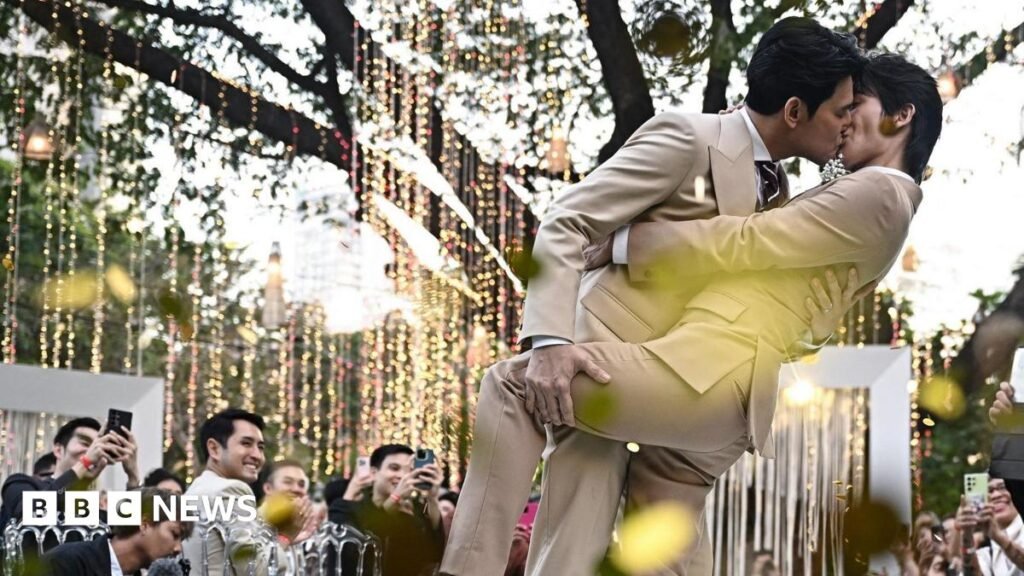The Philippines is increasingly accepting of LGBT couples living together openly. But the Roman Catholic Church categorically opposes same-sex marriage.
In Vietnam, as in Thailand, there are no religious or ideological barriers, but campaigning to change the law, as happened in Thailand, is difficult under a repressive regime. About the same in China. Until the ruling Communist Party supports equal marriage, which it has shown no sign of, it cannot happen.
Even in democracies like Japan and South Korea, where political parties are mostly conservative and dominated by older men, the outlook looks bleak.
“It’s largely blocked by conservative Christians,” says Chae Yun Han, executive director of the Beyond the Rainbow Foundation in South Korea.
“Most, if not all, of the politicians in President Yun’s conservative party are devout Christians, and they have framed marriage equality as a ‘leftist agenda’ that could potentially open society to a ‘leftist, communist takeover.’
India seemed close to legalizing same-sex marriage in 2023 when its Supreme Court ruled, but the judges refusedsaying it was a matter for Parliament.
Thus, Thailand hopes to benefit from being a pioneer. Tourism is one of the few sectors of Thailand’s economy to thrive in the post-pandemic recovery, and the country is considered a safe and welcoming destination for LGBT holidaymakers.
An increasing number of same-sex couples from other Asian countries are now choosing to live here.
The legal recognition of marriage they can obtain will allow them to raise children and grow old together with almost all the rights and protections afforded to heterosexual couples.

